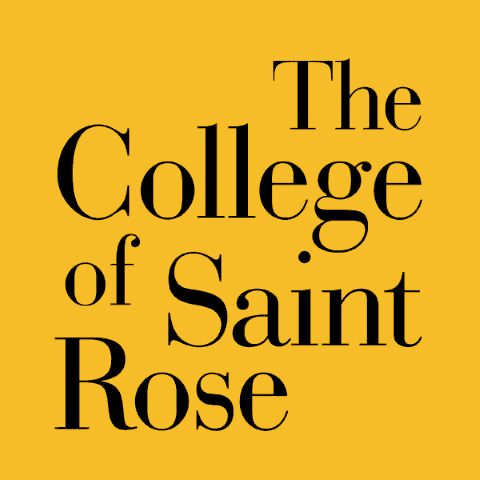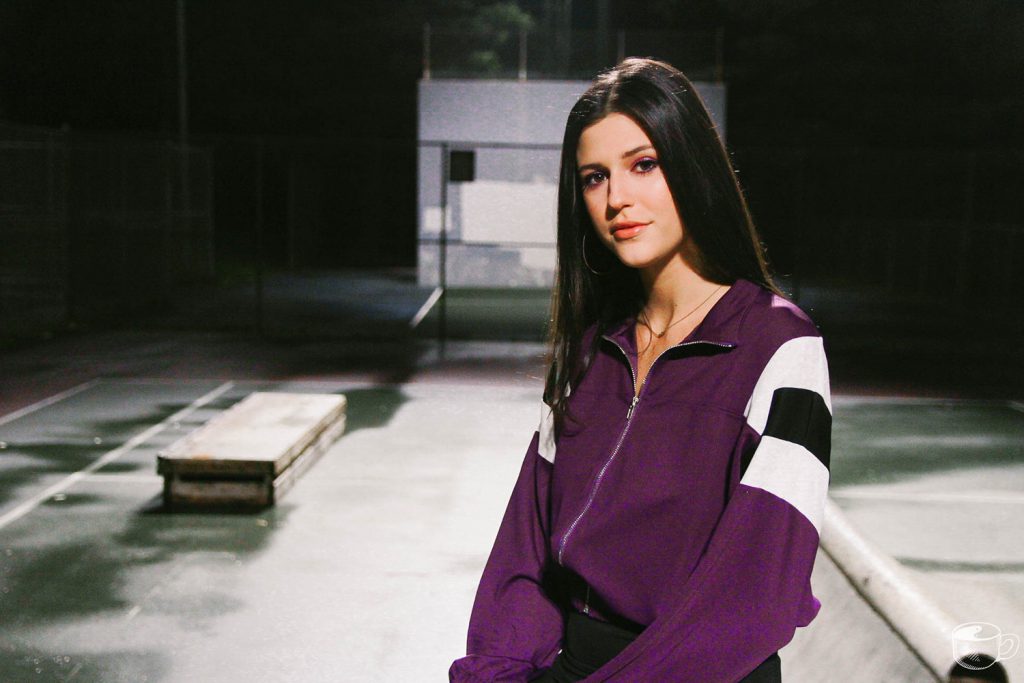Music industry student Julia Gargano ‘20 is preparing to graduate from Saint Rose this spring and embrace the music industry as a songwriter and artist.
When she first came to Saint Rose, Gargano thought she would stay in the shadows, composing songs instead of performing them. After auditioning for an Artist Development class, however, Gargano was quickly signed to the College’s Rose Record Label (a Saint Rose student-run record label). From there, a star was born.
Currently, she’s adjusting to her new role, performing her songs in front of live audiences, developing her brand, and continuing to do what she loves the most — pouring her heart out onto paper and into songs.
We recently caught up with Gargano to learn more about the inspiration behind her music and what’s next for this burgeoning musical artist.
Q&A with Music Industry Student Julia Gargano:
Q: When did you first become interested in music?
A: When I first saw my cousin had this band. My older cousin played drums, and I was like, “Mom, I need to take drum lessons.” So when I was 6 years old, she put me in drum lessons. I wound up singing to my drum teacher songs that I wrote. It was very awkward and not the right fit for me. So that is when I started playing piano and writing songs.
Q: I heard that you went to a performing arts high school. What was that like?
A: You are constantly surrounded by people who are talented — they push you to do better. Before I went to high school, I put myself in a box with writing. Taylor Swift was my lord. I tried to do everything like her. Then, I went to Laguardia [Fiorello H. Laguardia High School] and had to learn classical music and be trained that way. That alone gave me an edge to my music. Then, in my sophomore year, I joined a class of songwriters. That is where I heard the contemporary stuff — it was a bit avant-garde. It might sound bad, but I was pressured to change the way that I wrote. I started listening to new music and changed my music style while at that school. When I came to Saint Rose, it was more pop-based. So, I got to take this funky-experimental writing style I got from there and go back to my roots. This [Saint Rose] is where I developed my sound.
Q: How do you describe your sound?
A: What makes my music “me” is raw lyrics. I concentrate heavily on the words that I write, especially nowadays. My favorite artist is Brandi Carlile. She takes something ordinary and makes it sound magical and relatable. That is what I try to do in my music — I want people to feel a little spark.
Q: You’ve said that songwriting is an outlet for you to express your feelings. What does that process look like?
A: Oftentimes, when it comes to emoting and saying how I am feeling, it is much harder for me when it is with words. It is easier for me to get it out when I am alone with my piano or guitar and just have this border-free, limitless way of expressing myself. It kind of gives me this time to process how I am feeling anyway. So, it is not this overly saturated or emotional conversation I would ordinarily have. I am an emotional person. Once I put it in a song, it helps me deal with confrontation because I have had time to process. It helps me share how I feel at that moment in a disguised way. That is why songwriting is so important because I get to pour every ounce of how I feel when something happens into a song.
Q: Walk me through a song where you used that process.
A: There is a song called “Growing Pains,” kind of about reaching that point in your life where you don’t know where you are; or what you are meant to do; or who your real friends are. I was in a bad relationship and was like, “Is every relationship going to be like this?” It was a mix of emotions. I didn’t know what life had in store for me. In the moment, everything was overwhelming. I wrote “Growing Pains” and just got this spark of hope. You know these things happen. You work through them and learn.
Q: How does it feel to write a song about something you are passionate about?
A: Songwriting acts like a journal and memory scrapbook. You get to see your whole life in these special memories and turning points growing up. And, it is good because I find myself in similar situations, and I can look back to a song I wrote and remember how proud I was to get through something. Songs keep me in check. They help me make better choices.
Q: How have the Saint Rose music faculty supported your musical style?
A: Looking back on it now, Saint Rose was a huge booster for my confidence. My image as an artist: I have one now, and I never did. Before people would ask, “What is your image? What is your brand?,” and I would be like, “Um, I am from Staten Island?” I wouldn’t know what to say. But the professors here are really encouraging. They know all the right things to do to get you to where you need to go.
Q: What was it like working with the College’s Rose Record Label?
A: Having a student-run record label at the College you attend, you automatically have an advantage over other musicians your age. As a student, it is expensive to do things you want to do, such as putting music out. I didn’t have to worry about that stuff.
It is also really cool to look back on it now. I went through an electronic phase with the label. I tried so many things out. All my classmates were on the record label with me, and that was cool. You sit in meetings and have everyone talk about your career, and you can’t help but feel so blessed to have people care enough to do that.
Q: Did the program push you to do anything that you didn’t think you would do?
A: Before I came here, I never looked at myself as a vocalist. Being an artist was never at my forefront. I came here because I saw the songwriting portion of the label, and I thought it was so cool. I wanted to write songs for other people. Then, I auditioned for this class called Artist Development, and from there, I got signed [to the label]. Talk about having to brand yourself and come up with stuff you never had to think about before, which is important when you want to be an artist. It forced me to get my stuff together and really know how to present myself. It is something I don’t think I would have done if I wasn’t pushed out of my comfort zone to be an artist rather than be a songwriter. You can do both, be an artist and a songwriter, and you will probably do better if you are both in the industry.
Q: Any surprise artists who inspire you?
A: Taylor Swift was the reason I picked up a guitar in the first place. T-Swift is a genius. Her newer stuff I respect. Her first three or four albums are unreal. I still go back and listen to it if I am having a bad day. If I am consumed in craziness or depression, I think back to an album like “Fearless” or “Speak Now” and think this is why I am doing what I do. I can picture myself singing these songs. I credit so much of writing and my passion to T-Swift.
Q: Can we talk about pop music for a minute? Why do you think it gets a bad rap?
A: It is so funny. People say they hate pop music — they don’t understand the umbrella they are talking about. When they say they don’t like pop, you know who is pop? Billy Joel, Elton John, and Prince, they are pop. You sound silly! You think Elton John is silly? No, you don’t. You don’t hate pop. I think people have a stigma if you are not using acoustic instruments. I have friends who produce electronic music and seeing them do that, it is a whole different skill I will never know how to do.
Q: What is next for you? How do you overcome that fear of breaking out in a competitive field?
A: It is an intimidating business. There are a million people who want to do the same thing that you want to do. The outlook I have on music — I don’t know if it helps or hurts. It is not a fear-instilling concept for me. I don’t think I am going to leave college like, “Oh no, there is way too much to do. I am never going to make it.” If I think that way, I will not get far after college. I know I am going to keep performing. I am getting on this new track where I love to perform. That just started for me. That was never my preferred part of the industry — live performing. And I am definitely going to keep writing because I don’t really do anything else.
Photo credit: Judybelle Camangyan
This interview was edited for style and clarity.




Comments posted on this site are held in moderation until approved by a site administrator. Vulgar, profane, obscene, offensive terms or personal attacks will not be tolerated.